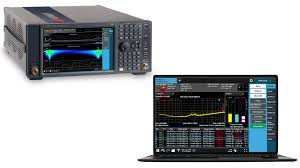In today’s rapidly evolving technological landscape, electronic devices are becoming increasingly sophisticated and interconnected. With this advancement comes a critical responsibility: ensuring that these devices operate without causing or experiencing electromagnetic interference (EMI). This is where an EMC testing lab plays a vital role.
What is EMC Testing?
Electromagnetic Compatibility (EMC) testing is the process of assessing whether an electronic device can function properly in its intended environment without emitting excessive electromagnetic interference or being vulnerable to it. The goal is twofold:
- Emission Control – ensuring the product does not generate harmful electromagnetic disturbances.
- Immunity Verification – confirming the product continues to operate reliably when exposed to external electromagnetic sources.
EMC testing is essential for compliance with international regulations such as FCC (USA), CE (Europe), CISPR, IEC, and ISO standards.
Why EMC Testing Labs Are Important
An EMC testing laboratory is equipped with advanced facilities, instruments, and chambers to evaluate electronic products for compliance. Partnering with a certified EMC testing lab offers multiple benefits:
- Regulatory Compliance: Helps manufacturers meet mandatory legal requirements for global markets.
- Market Access: Without EMC certification, products cannot be sold in many regions worldwide.
- Product Reliability: Testing ensures the device performs consistently in real-world environments.
- Brand Reputation: Demonstrates commitment to safety, quality, and customer trust.
- Reduced Risk of Failures: Identifies design flaws early, preventing costly recalls or product malfunctions.
Key Facilities in an EMC Testing Lab
Modern EMC labs are equipped with specialized environments and instruments, including:
- Anechoic Chambers – shielded rooms lined with absorbing material to simulate free-space conditions for emission and immunity testing.
- Reverberation Chambers – used to expose devices to strong electromagnetic fields in a controlled environment.
- Spectrum Analyzers & EMI Receivers – for precise measurement of radiated and conducted emissions.
- Shielded Rooms – prevent external signals from interfering with the testing process.
- Immunity Testing Systems – simulate real-world disturbances like electrostatic discharge (ESD), surges, and RF interference.
Types of EMC Tests Performed in Labs
A comprehensive EMC testing lab offers various evaluations, including:
- Radiated Emissions Testing – measures electromagnetic noise emitted into the air.
- Conducted Emissions Testing – checks interference transmitted through cables and power lines.
- Radiated Immunity Testing – assesses how a device withstands external RF signals.
- Conducted Immunity Testing – evaluates resistance to disturbances conducted through cables.
- Electrostatic Discharge (ESD) Testing – ensures product safety against sudden electrical discharges.
- Surge & Transient Testing – simulates lightning strikes or power line fluctuations.
Industries That Require EMC Testing
EMC testing labs serve a wide range of industries, including:
- Automotive – ensuring vehicle electronics don’t interfere with safety systems.
- Medical Devices – critical for life-saving equipment to remain safe and reliable.
- Aerospace & Defense – where malfunction due to EMI can have catastrophic consequences.
- Consumer Electronics – smartphones, laptops, and wearables must meet global EMC standards.
- Industrial Equipment – machinery used in manufacturing environments must function safely under strong electromagnetic conditions.
Choosing the Right EMC Testing Lab
When selecting an EMC testing laboratory, manufacturers should consider:
- Accreditation (ISO/IEC 17025, A2LA, NVLAP, or equivalent).
- Experience with relevant standards (FCC, CE, CISPR, MIL-STD-461, etc.).
- State-of-the-art equipment and chambers.
- Fast turnaround time and technical support.
- Global recognition of test reports and certifications.
Final Thoughts
An EMC testing lab is more than just a compliance checkpoint—it is a crucial partner in ensuring the safety, reliability, and market readiness of electronic products. With the growing complexity of devices and stricter international regulations, investing in high-quality EMC testing is not just a regulatory necessity but also a competitive advantage.
By collaborating with a trusted EMC lab, manufacturers can confidently deliver products that meet global standards, perform flawlessly, and earn customer trust.
